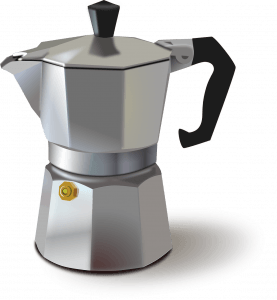“…An elementary decision of whether to buy something or not really depends in some nontrivial way on a whole host of factors that extended beyond that individual object.”
 An interview with Sam Gershman, PhD
An interview with Sam Gershman, PhD
Assistant Professor, Psychology Department, Harvard University
By Michelle Johnson (2/15/19)
When you were a kid, what did you want to be when you grew up?
I had lots of different visions for my future career. When I was little, like kindergarten and first grade, I wanted to be a fiction writer, and I would write little books and bind them with plastic binders and then sell them on the street. It was like a lemonade stand called “Gershman Homemade Books.” Then later on in middle school I was convinced that I want him to be a writer of film music. Then going into college, I really had no idea that I wanted to be a scientist, it was really taking a cognitive neuroscience course that captured my imagination, and I never looked back.
What’s an example of the questions your research focuses on?
You think about what appliance to buy at a store. You have to think about all sorts of different kinds of properties of that object, like its durability, its cost, it’s appearance. You’d also have to think about factors that exte nded beyond that individual object. You have to think about other people: who’s going to use that, why are they going to use it, when are they going to use it? You’ll have to make predictions about your future usage, extrapolating from your past usage. And the point of this is that even just an elementary decision of whether to buy something or not really depends in some nontrivial way on a whole host of factors that extended beyond that individual object. The argument behind my research or the impetus for this research is to bridge this study of decision-making with the study of cognition.
nded beyond that individual object. You have to think about other people: who’s going to use that, why are they going to use it, when are they going to use it? You’ll have to make predictions about your future usage, extrapolating from your past usage. And the point of this is that even just an elementary decision of whether to buy something or not really depends in some nontrivial way on a whole host of factors that extended beyond that individual object. The argument behind my research or the impetus for this research is to bridge this study of decision-making with the study of cognition.
What drives you in your work as a researcher?
Well, certainly what gets me out of bed in the morning is answering the fun questions. But part of it is a kind of obsessiveness. Once you’ve stated the question and you’ve decided that this question needs to be answered for me, I just have to keep plugging away at it until I find the answer.
What has the transition been like going from student to post-doc to professor?
It’s definitely different. What one of the positives of being a professor and running a lab is that now you have all of these different people to distribute all the different ideas that before I was kind of working on my own. Now lots of different people that can help me realize these ideas in parallel. There’s a kind of scaling up that happens. And then there’s also a synergy not just with interactions between me and students but between students that can accelerate things and produce new ideas that I hadn’t even conceived.
What’s the best piece of advice you’ve ever received?
The best piece of advice that I got about writing was to read it out loud and listen to how it sounds. This advice came from my mother when I was making Gershman Homemade Books. I think that was really useful because it gave me a kind of aesthetic sense for what good writing sounds like, a sense that even though there’s a lot of idiosyncrasies in academic writing versus fiction or the humanities, there’s still some sense of aesthetic goodness that transcends those idioms. That’s something I’ve taught my own students.
To learn more about Dr. Gershman and his work, click here.
Click here to go back to the “Interviews with Scientists” page.
